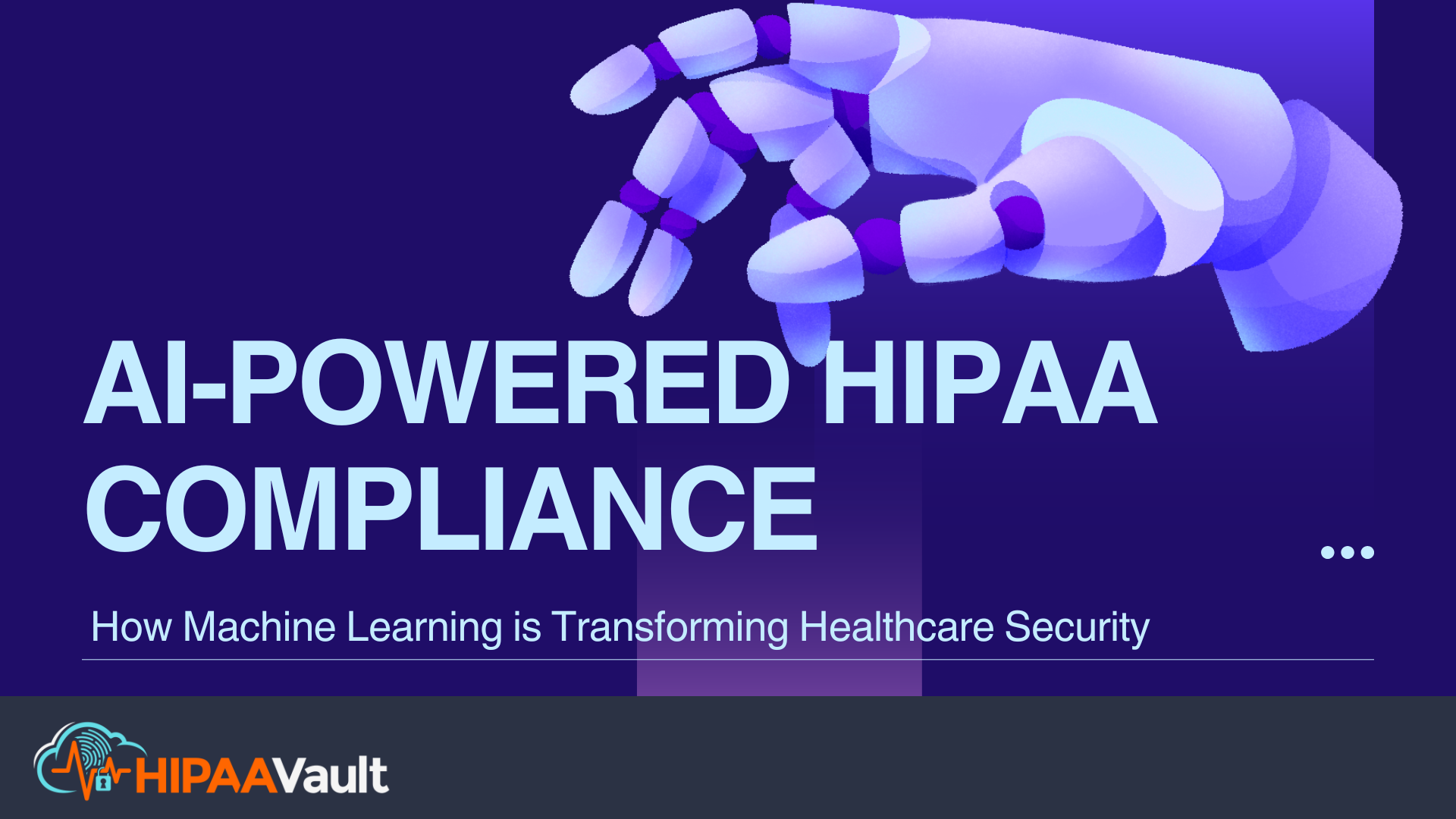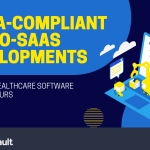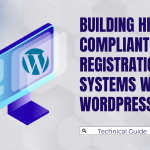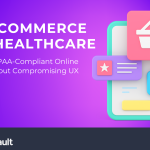
AI-Powered HIPAA Compliance: How Machine Learning is Transforming Healthcare Security
Healthcare organizations are fighting an uphill battle against increasingly sophisticated cyber threats, with security teams often overwhelmed by thousands of daily alerts across complex clinical systems. Traditional HIPAA compliance monitoring — relying heavily on manual reviews and static rules — simply cannot scale to meet these challenges. AI-powered HIPAA compliance tools are revolutionizing how healthcare protects sensitive patient information, shifting from reactive checkbox approaches to proactive, intelligent security that continuously adapts to emerging threats.
The Modern Healthcare Security Challenge
Today’s healthcare security teams face three critical challenges:
Sophisticated attacks that use legitimate credentials and “low-and-slow” techniques to evade traditional detection methods.
Overwhelming alert volume — a typical 500-bed hospital generates over 50,000 security events daily, creating significant “alert fatigue” among security personnel.
Resource constraints — most healthcare providers maintain just one security professional per thousand employees while juggling multiple security tools and increasing regulatory requirements.
As one compliance officer told us: “Manual monitoring simply can’t keep pace with the expanding compliance landscape. We needed something that could provide continuous oversight across all our systems.”
How AI Transforms HIPAA Compliance
Machine learning addresses these challenges through several key capabilities:
Intelligent Anomaly Detection
Unlike static rule-based systems, AI establishes normal behavior patterns and identifies deviations that might indicate security issues. This approach:
- Processes vast amounts of security data while recognizing subtle patterns human analysts would miss
- Differentiates between legitimate exceptions and genuinely suspicious activities
- Adapts automatically to regular variations in system usage, like different access patterns during day shifts versus overnight
A regional hospital implementing AI-based monitoring identified potential PHI breaches nearly a month earlier than peers using traditional methods.
Behavioral Analysis for Better Access Control
AI creates sophisticated profiles for each staff member based on their role, department, and typical access patterns. This enables:
- Detection of credential misuse even when attackers have legitimate login information
- Recognition of unusual access sequences or data access volumes
- Identification of access patterns violating least privilege principles
One health system discovered through pattern analysis that clinicians were accessing records of non-assigned patients approximately 80 times daily — a compliance gap that had persisted for months despite regular audits.
Natural Language Processing for Unstructured Data
Healthcare organizations generate massive volumes of unstructured text through clinical notes, emails, and support tickets. NLP systems:
- Automatically identify HIPAA-defined PHI elements within free text
- Understand clinical context to differentiate between permitted and unauthorized sharing
- Detect potential PHI in communications with unauthorized recipients
A behavioral health provider discovered their staff was inadvertently including PHI in 23% of routine administrative emails — a significant compliance gap only uncovered through NLP analysis.
Real Results: AI Security in Action
The impact of AI-powered security becomes clear in real implementations:
Large Health System
A 12-hospital system implemented AI security monitoring and saw dramatic improvements:
“We’ve shifted from constantly chasing alerts to proactively addressing security issues before they impact patient data,” their CISO reported. “Investigation time decreased by 94%, false positive alerts dropped by 78%, and we discovered 27 previously undetected compliance gaps.”
Small Medical Practice
A 15-physician specialty practice found enterprise-grade protection within their budget constraints:
“As a small organization, we could never afford a dedicated security team,” their administrator explained. “AI-powered security detected a compromised vendor account attempting to access billing data, reduced our documentation burden by 40%, and helped us successfully navigate an OCR desk audit without external consultants.”
Specialized Provider
A behavioral health provider with telehealth services across three states experienced an 82% reduction in false positives through healthcare-specific behavioral models.
Their compliance officer noted: “The system truly understands our unique workflows and doesn’t generate alerts for legitimate clinical patterns. Security is no longer an obstacle to our mission.”
Getting Started with AI-Powered HIPAA Compliance
Ready to enhance your healthcare security? Start with these steps:
- Assess your current state: Evaluate your security data collection quality and existing tool capabilities.
- Begin with high-value use cases: Focus on privileged account monitoring, anomaly detection for PHI systems, or access pattern analysis for clinical applications.
- Build your data foundation: Implement comprehensive logging across critical systems to support effective machine learning.
- Prepare your team: Ensure security personnel understand how to effectively collaborate with AI security tools.
The Future of Healthcare Security
Looking ahead, AI security will continue evolving with:
- Self-healing systems that automatically isolate compromised components and reconfigure to address vulnerabilities
- More autonomous security agents that specialize in different threat domains while working collaboratively
- Enhanced regulatory frameworks specifically addressing AI security validation and oversight requirements
Conclusion
Healthcare organizations face security challenges that traditional approaches can no longer adequately address. AI-powered HIPAA compliance solutions provide healthcare-specific protection that understands clinical workflows while delivering comprehensive protection against evolving threats — all with fewer resources than conventional methods require.
By implementing intelligent security technologies, healthcare organizations can achieve meaningful HIPAA compliance while genuinely protecting patient information against sophisticated modern threats.
Ready to explore how AI-powered security can transform your HIPAA compliance program? Contact HIPAA Vault today for a personalized consultation.



